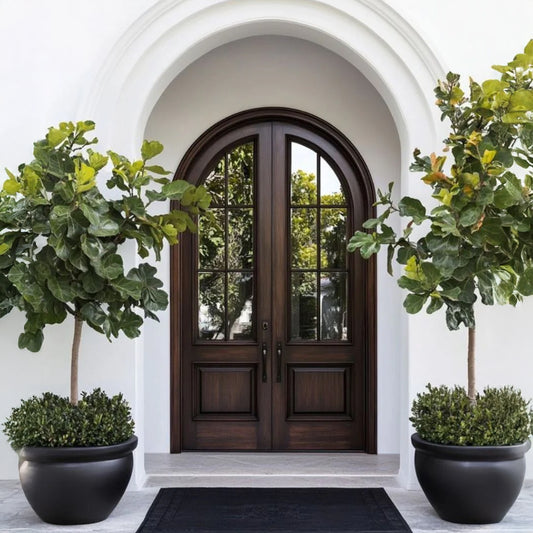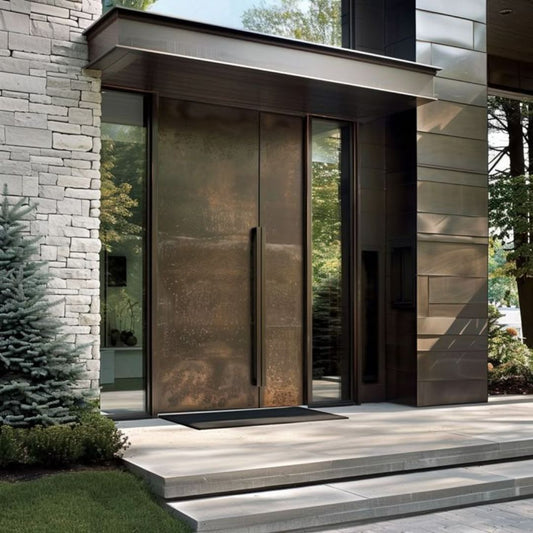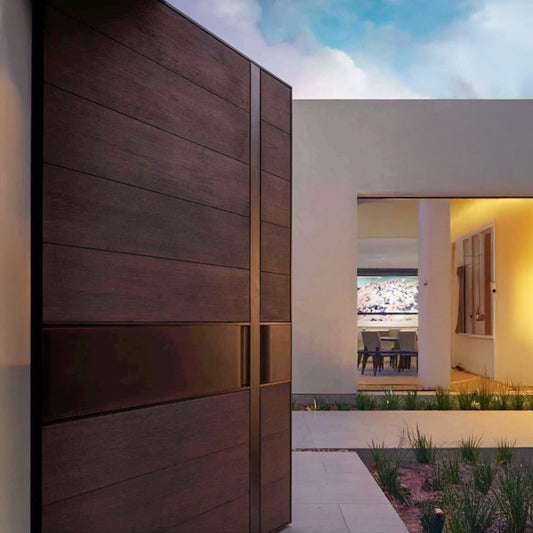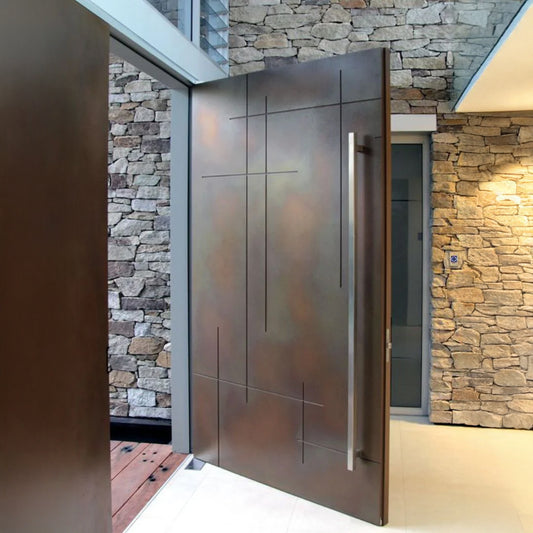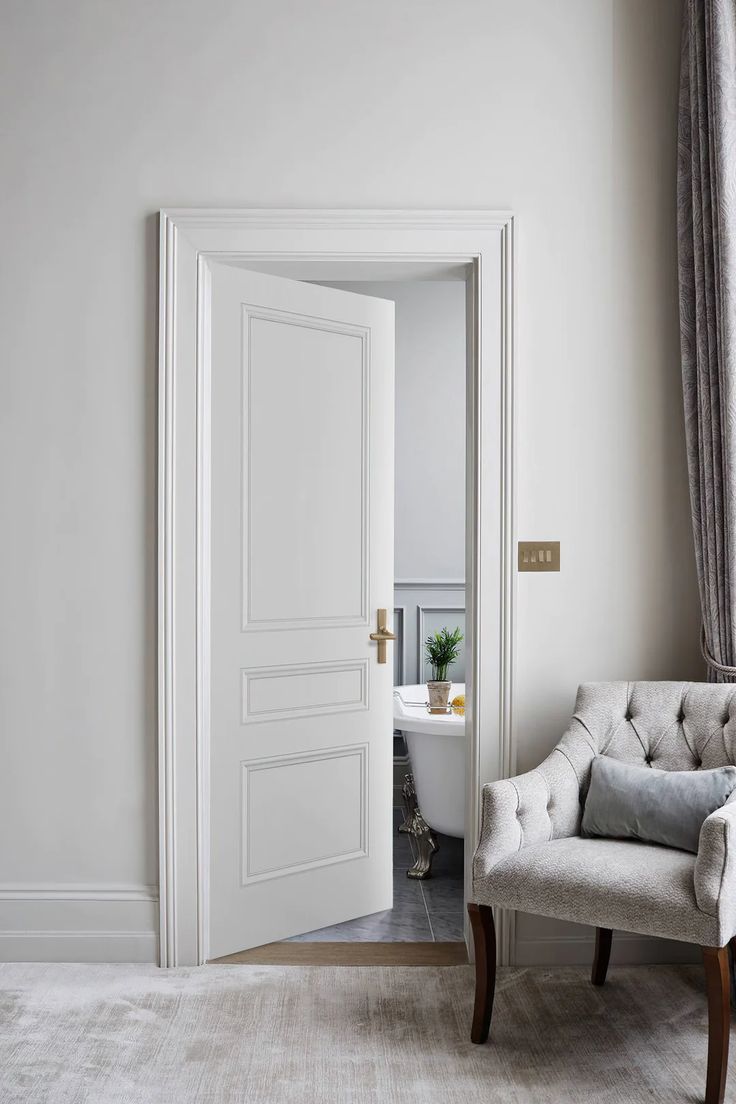
Why You Should Choose Solid Core Doors Instead of Hollow Core Doors
Share
When it comes to selecting interior doors for your home, the choice between solid core doors and hollow core doors is significant. Doors are an essential part of your home's aesthetics, functionality, and comfort. They are not just barriers for privacy; they contribute to sound insulation, durability, and overall home value. If you're planning to invest in doors that will last the next 15-20 years, solid core doors are undoubtedly worth considering over hollow core options. Let’s explore why solid core doors are a superior choice.
One of the most noticeable advantages of solid core doors is their ability to block sound. Solid core doors are filled with a solid material, often a wood composite, which makes them significantly denser than hollow core doors. This density provides excellent sound insulation, ensuring that noise from one room doesn’t easily travel to another. This is particularly beneficial in homes with multiple occupants, such as families or shared living spaces, where noise reduction is essential for privacy and comfort.
On the other hand, hollow core doors, as the name suggests, are mostly hollow inside with only a thin layer of MDF (Medium-Density Fiberboard) or hardboard surrounding them. This lack of density makes them poor at blocking sound, allowing noise to pass through more easily and reducing privacy.
2. Durability and Resistance to Warping
Solid core doors are known for their durability. Unlike hollow core doors, which are prone to warping and damage due to their hollow construction and the materials used, solid core doors remain sturdy over time. The solid wood filling inside these doors provides them with a greater density and strength, which helps maintain their shape even after years of use.
Hollow core doors, on the other hand, are more likely to swell, crack, or become damaged, especially in environments with high humidity. Since hollow core doors often use MDF, a material that is highly susceptible to moisture, they tend to swell or warp over time. This can lead to doors sticking, not closing properly, or requiring frequent maintenance and replacement.
3. Long-Term Value and Affordability
While it might seem that hollow core doors are the more budget-friendly option initially—typically costing between $200 to $300—their long-term value is questionable. Hollow core doors are more likely to suffer damage from humidity, dents, and daily wear and tear, leading to potentially higher costs for repair or replacement over time.
On the contrary, solid core doors, ranging from $350 to $700, offer much better value for money. They are more durable, resistant to damage, and maintain their appearance and functionality for many years. This means that the initial investment in solid core doors pays off in the long run, as they don’t need to be replaced as often and are less prone to issues that can arise with hollow core alternatives.
Solid core doors not only perform better functionally but also provide a superior look and feel. They are heavier, sturdier, and give a sense of quality and craftsmanship that hollow core doors lack. When you open and close a solid core door, you can feel its weight and solidity, which many homeowners associate with luxury and quality. This substantial feel can significantly enhance the overall ambiance and perceived value of your home.
5. Better Security
While interior doors aren't typically chosen for security, it’s worth noting that solid core doors offer better resistance to forced entry compared to hollow core doors. Their solid construction makes them harder to break or damage, which can be a consideration in certain situations, such as for bedroom or home office doors where you may want added security.
Conclusion: Solid Core Doors Are Worth the Investment
When weighing the pros and cons of solid core doors versus hollow core doors, it's clear that solid core doors offer significant advantages. From better sound insulation, durability, and aesthetic appeal, to their long-term value and sturdiness, solid core doors are an excellent investment for any home.
While hollow core doors may appear more cost-effective upfront, their susceptibility to damage and lower performance make them less desirable in the long run. If you're looking for doors that provide superior quality, durability, and a timeless look that will stand the test of time, solid core doors are the ideal choice.
Invest wisely in your home’s interior doors—choose solid core doors for lasting comfort, quality, and peace of mind.


